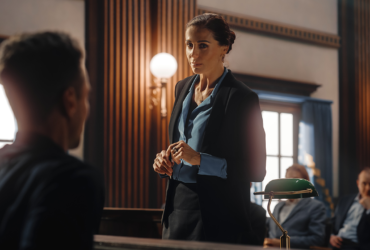Stands for Judgment Notwithstanding Verdict and happens when a trial judge overrides the jury verdict and instead enters its own judgment on the matter
On rare occurrences, a judge will disregard the verdict of the jury by legally concluding as a matter of law that no reasonable jury could have rendered such a verdict.
Following a motion for a JNOV, or in the alternative, a motion for a new trial, the judge will either override the jury’s verdict and enter its own, or in the alternative grant the losing party a new trial.
This could happen in cases where the judge concludes the jury misunderstood a key jury instruction or that as a matter of law, there was insufficient evidence to prove or disprove an essential legal element of the case.





